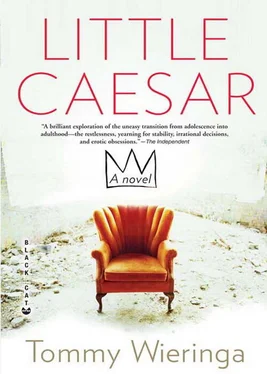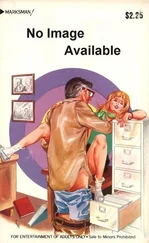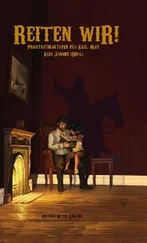I shook my head.
‘I dream about her sometimes,’ I said. ‘Every time I spend the first night in a new country, strangely enough. It’s like clockwork. Sometimes a little more often, but always the first night after I’ve crossed the border, when I’m lying in a strange bed, under a strange sky.’
‘Strange, yeah.’
‘I think I’m the only person in the world who has that. I’ve never heard of it or read about it anywhere. The Unger Syndrome.’
‘There must be other people who have the same thing.’
‘You’re probably right. But now I’ve coined the term.’
‘Have you ever become involved with a girl after that? For a longer period of time, I mean.’
‘No.’
‘You’re thirty now.’
‘Almost.’
Only at dinner, late that evening in Cologne, did she broach the subject again.
‘So why don’t you have any girlfriends?’
Because you’re still alive , I thought, but I said something else.
‘Maybe because I don’t really need anyone anymore, as you once told me.’
‘Did I say that? I’m surprised you remember.’
I examined her face in search of hidden meanings, but she seemed to have truly forgotten about it, the evil spell, the shadow at my back.
‘I can’t believe you’ve actually forgotten saying that.’
‘Really, I have. What did I say? That you didn’t really need anyone anymore? That’s true, isn’t it? You can’t expect someone else to compensate for your defects. People should be together because they’re free to do that, not out of dependency.’
‘It meant something else, back then.’
‘But it’s not because you prefer boys, is it? That’s not why you don’t have girlfriends, is it? I mean, it could be, right? It happens more often to boys who are very much focused on their mother, when there’s no father figure around.’
‘Oh, Jesus.’
‘I want so badly to be a grandmother.’
I shook my head, a punch-drunk boxer. The bite of schnitzel had concealed a clump of gristle. I raised my napkin to my mouth and discreetly spat out the meat.
‘Nice?’ she asked.
‘Mmmmm. Could you pass the salt?’
This is how the day began:
She: I think that’s such a nice thought, that we don’t breathe ourselves, but that we are breathed.
I: Briefed?
She: Breathed. That we are breathed.
I: By whom, exactly?
She: Oh please, let’s not start at breakfast.
A little later we were standing before the Privatpraxis of PD Dr. Med. Richard H. Kloos, Arzt für Allgemeinmedizin und Naturheilkunde , and coincidentally the world’s last wearer of bowties. The body of the good doctor himself, it appeared, was seized regularly by heavy tremors. The cups on his desk rattled, the water rocked in the pitcher. The bowtie and the tremors lent him credibility, just as the seer is often blind and the shaman lame or crippled. Those are the afflictions with which the god has smitten them, so they can speak the truth profoundly. I heard my mother saying. . to give my own body a chance first. . thoroughly detoxify. . so much old pain . . And he: Everything is connected with everything else, everyone produces cancer cells all day long. Back in 1912, Rudolf Steiner said. . That’s right, he knew about the effectiveness of mistletoe as well. It’s so good for people, mistletoe, it’s a gift. I had cancer myself, that’s when I found out about the power of mistletoe, I owe my life to mistletoe! I want do something in return for mistletoe!
And once again the storm of muscular contractions shook the table. When it was over he arranged his bleached locks and dabbed at his moustache as though it had been knocked out of place. My mother nodded contentedly. She was in the presence of a peer, she didn’t have to defend herself. Dr. Richard H. Kloos didn’t even have to work hard in order to convince her to follow the fifty-thousand-euro course of treatment. I tried with all my might to catch his meaning when he proceeded into a lecture about Natural Killer Cells — dendritic cells, each and every one of them capable of destroying five thousand cancer cells. The armies of cancer and anti-cancer paraded around the table. The treatment he had developed boiled down to a form of own-blood therapy and was allowed only in Germany, Austria and Switzerland. From what I understood, my mother’s blood would be tapped off and the monocytes, the baby white-blood cells , would be separated from it. Within seven days, Richard Kloos said, the monocytes would be converted into healthy dendritic cells and then injected back into the bloodstream. The treatment would involve six visits to the clinic.
‘Two to four hours after the treatment you come down with a kind of flu. There is so much going on in your immune system that it produces symptoms of feverishness. I would advise you not to travel during that period, but to take a hotel and wait until you recover.’
When he was called out of the room for a minute, my mother said contentedly, ‘A real man of science.’
He then took us on a tour of the clinic. We saw the long rectangular boxes into which the patients were put during their treatment. The temperature inside was then cranked up to a maximum of forty-two degrees centigrade; it was at that temperature, Kloos said, that the protein in cancer cells began to coagulate, while the protein in normal, healthy cells did so only at forty-four degrees. We peeked into a room where a woman was lying on a waterbed.
‘She’s developing an electron field,’ Kloos said.
He stood in the doorway and winked at my mother. I heard him say,‘. . that’s exactly what Rudolf Steiner said, isn’t it?’
Back in his office we waited politely for his tremors — which had started this time in mid-sentence — to end. He resumed, ‘What I can’t tell everyone, but feel comfortable telling you, is that we also accept payment in cash. Off the record, if your insurance won’t cover the treatment.’
We left Cologne and followed the snarl of autobahns. That part of Europe looks, on the map, like the web of veins on an old woman’s leg. From beside me came a voice dipped in the bittersweetness of self-pity.
‘I felt sort of sad last night when you didn’t want to take my arm.’
I said nothing. She said, ‘What I thought was: there will come a day when you’ll get down on your bare knees and beg to be able to still give me your arm.’
Above the fields, the cloud cover roiled, veils of rain hung from the sky.
‘Even in death you still manipulate me,’ I said.
Six disastrous trips to Cologne followed. In addition to the patent agonies of war, torture and famine, there is also the agony of family. Along the high quays of Cologne, above the river that swept deep and wide through its channel, I thought with irksome regularity on the words Randy Newman had written with the Rhine in mind. I’m looking at the river. But I’m thinking of the sea . The first two times I stayed with her during the treatment in the box, that stage prop from the theater of illusionists in which Richard H. Kloos was a player as well. Her head, resting on a towel, was the only thing sticking out of it. I sat in a chair beside her and watched as she was slowly warmed up. Her face grew redder and redder. The sweat poured off her. Sometimes the skepticism and the chill in my soul left, to make way for the irrational hope that this via dolorosa would lead to healing, that it was actually possible. Kloos, after all, had said that fifteen percent of the women who came to him were completely healed by his treatment. Sixty percent showed partial remission, and twenty-five percent died anyway. One hundred percent of everyone who came here tried to wriggle their way into that fifteen percent. They all did their best. Belief was the most important condition. Anyone who did not believe had given up all hope of being healed and was lost. And so they believed, the women I saw shuffling down the hall, skinny and exhausted in their fluffy bathrobes, they believed in the magic power of dendritic cells and the magic hand of Dr. Richard H. Kloos, the mediator between life and death. They believed in the face of everything, in order to win a place in the Lucky Fifteen. I dabbed at her face with a cloth, which I had to change for another after the second time, so freely did the sweat run.
Читать дальше












